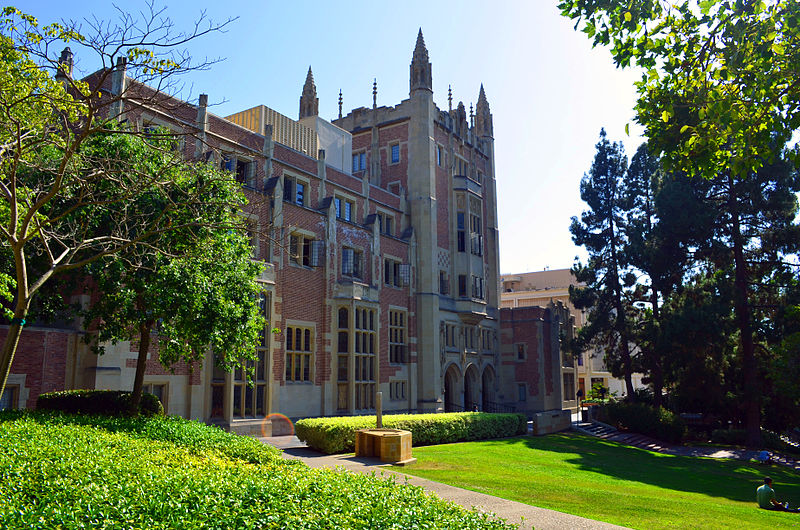The facts are pretty straightforward: after 12 hours of public deliberation on a resolution to divest from companies operating in the West Bank, USAC rendered a 7-5-0 vote against the suggested resolution. By virtue of the polarizing Israeli-Palestinian conflict, one would expect a clear ‘winner’ and ‘loser’ to emerge from the carnage. And while the pro-Israel community on campus largely met its short-term goal of rebuffing an attempt to introduce BDS legislation, the victory was Pyrrhic.
What is clear from the night’s proceedings, as five hundred students, alumni and visitors clustered in the back of the Ackerman Grand Ballroom to voice their opinions into two microphones, is twofold. First, the arguments were intensely personal — representing two incredibly divergent narratives — and whatever chasms existed between these two competing groups were certainly no closer by sunrise. Second, regardless of the night’s outcome, the Israeli-Palestinian conflict would continue to be a source of contention and bitterness moving forward on campus.
The question remains about how to properly internalize Tuesday night’s event as a community. It would be irresponsible to claim it as a victory and begin preparing for the next inevitable round of legislation. Moreover, anyone who feels comfortable with the current and hostile environment on campus, mired by an absence of dialogue, is entirely oblivious to the destructive nature of the status quo. This perpetual cycle marked by political maneuvering, eruptions of vitriol and rhetoric at regular intervals is untenable.
A frequent refrain among those in opposition to BDS legislation was that the approval of such legislation would permeate the larger UCLA campus with an uncomfortable atmosphere. However, what these advocates failed to envision was that whether approved or rejected the outcome would remain the same. It takes a quick glance at the various comment sections pertaining to USAC’s vote to glean that the approval or disapproval of divestment was entirely irrelevant to campus morale.
And while the emphasis of the last few weeks’ campus dialogue has centered around the effects of divestment on Israel and the prospect of an independent Palestinian nation, a far more immediate and pressing need has largely remained absent from the conversation. The BDS movement thus far has had an exponentially larger effect on our immediate community than it has on the greater Israeli-Palestinian conflict and peace process. The movements are often imperceptible, but the BDS movement has indirectly enacted tremendous change in the composition and priorities of the Jewish and Israeli community on campus.
Historically, Jewish communities on campus, especially at UCLA, have succeeded in vibrancy by virtue of their ability to make tremendous contributions to the larger campus community rather than by their political clout. UCLA Jewry has a lengthy history of activism in social justice, contributions towards research and fundraising for various medical disorders and diseases, and sponsoring and promoting fine arts, as well as a bevy of other outlets. While Israel and the ongoing peace process are of intense importance to the Jewish campus community, we must not allow BDS to monopolize our objectives on campus.
Imagine for a moment a counter-factual: what would the Jewish community on campus look like if no BDS movement existed? To some extent, BDS has served to unify the Jewish and pro-Israel community. More activists and supporters turned out to argue against BDS than I can recall seeing at any of Hillel, JAM, or Chabad’s Friday night Shabbat dinners. More importantly, the BDS movement has diverted our attention away from dedicating our time to making significant contributions to the UCLA community. Although attempts to introduce BDS are certainly beyond the control of the pro-Israel community and they certainly warrant a response, the community must be mindful of its obligations to the larger UCLA community.
The Jewish community’s leadership, comprised of extremely talented students with an incredibly diverse set of interests, has spent countless hours towards this political contest. Where would these hours and resources be allocated if BDS were not present? Ultimately, we must understand that we are bound by natural law: time is definite and this battle, as it has appeared on campus, is an indefinite abyss. Although we are all free to choose how to dedicate our time, it is important for us to understand what our resources and time might do more if allocated elsewhere. We must proceed cautiously by retaining our true sense of purpose, making meaningful contributions on campus and not getting bogged down in a rhetorical and political quagmire.

